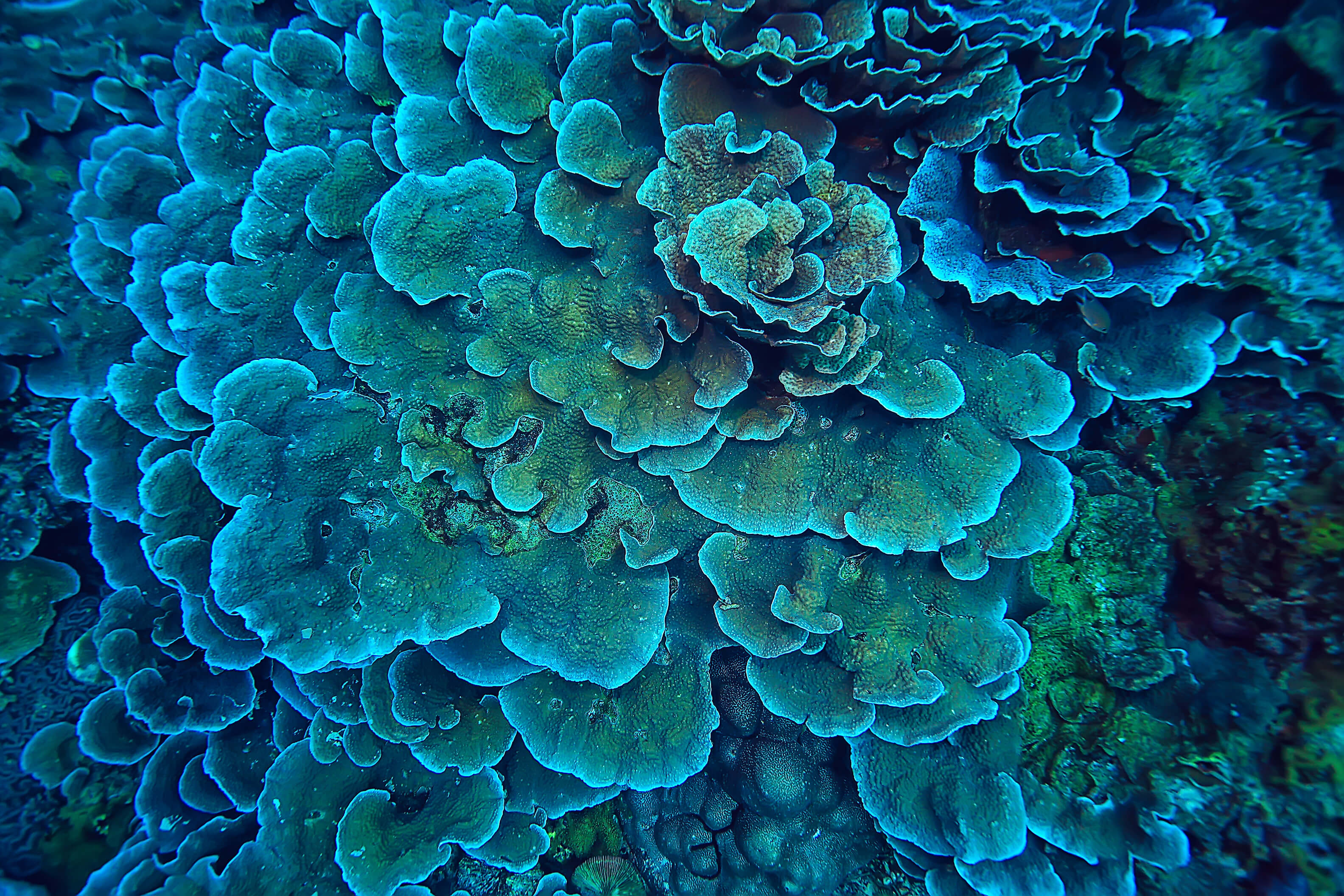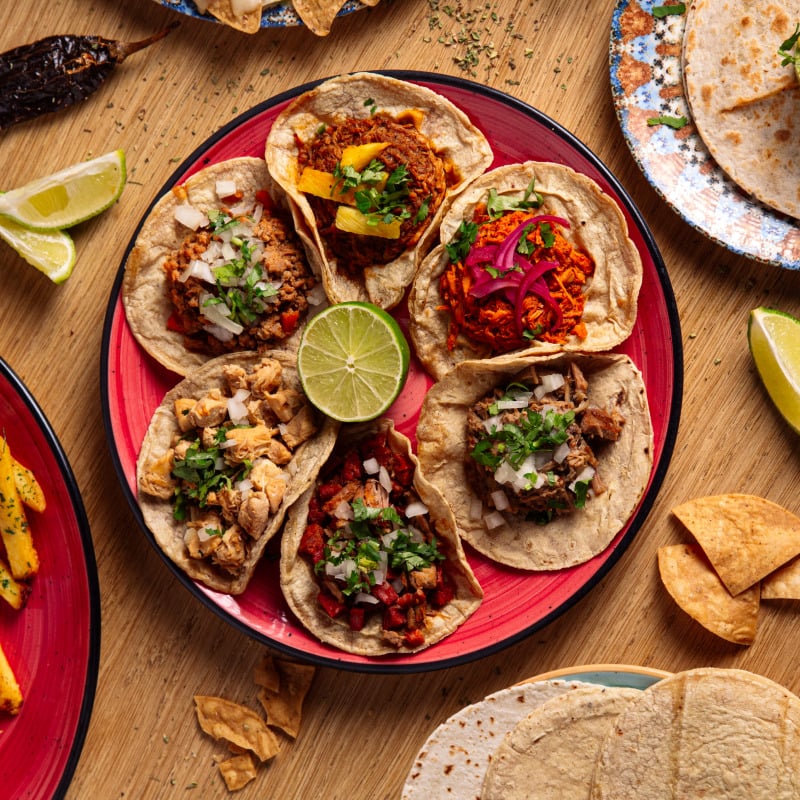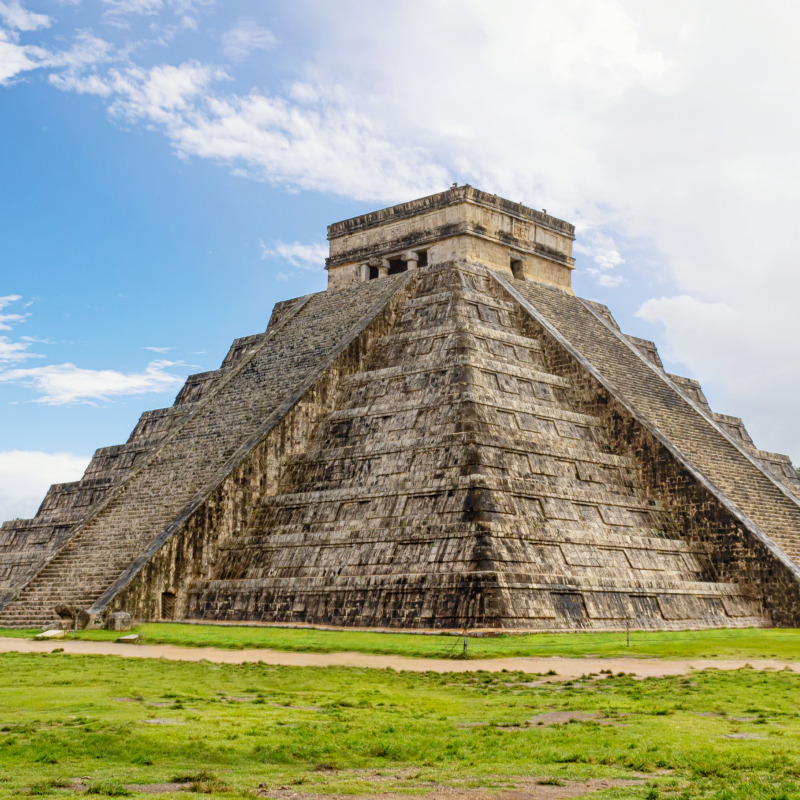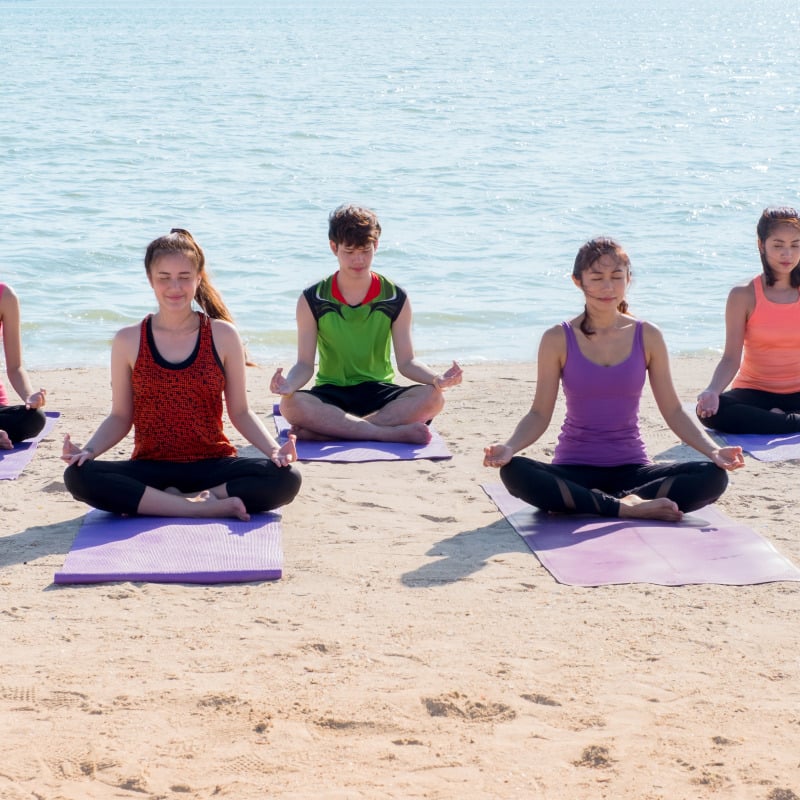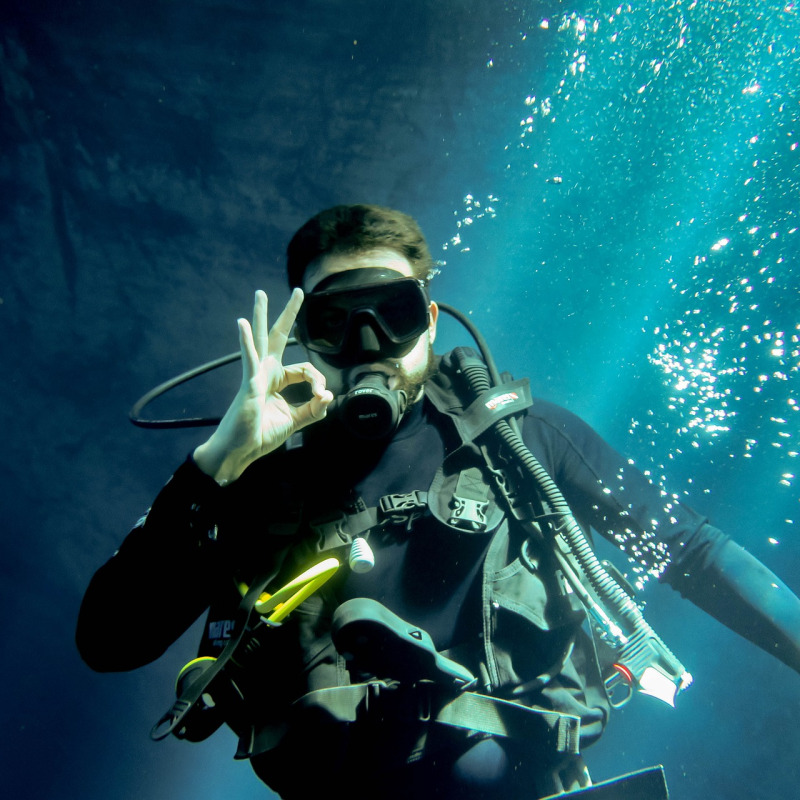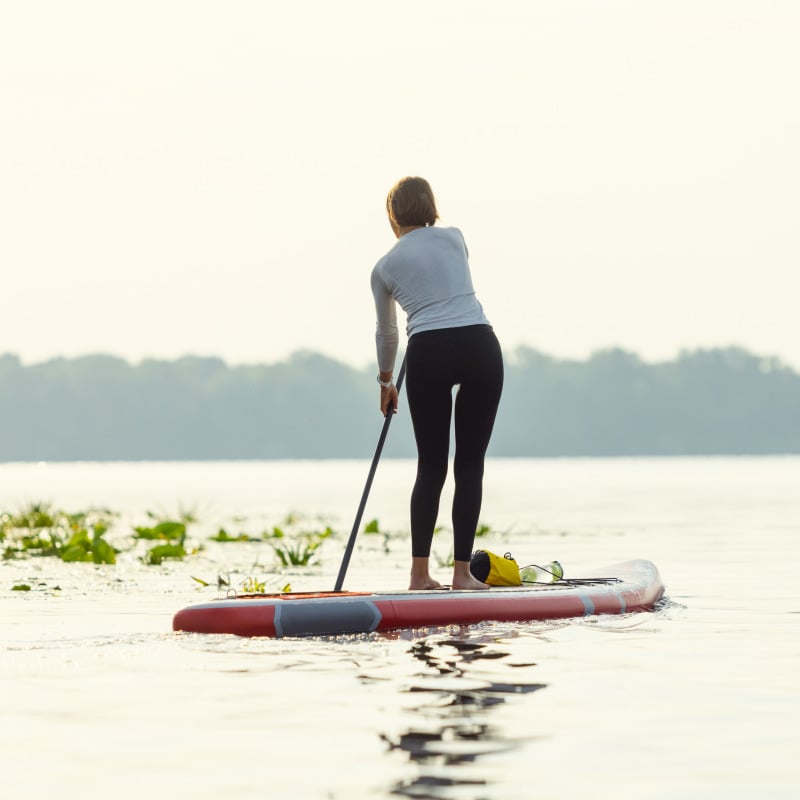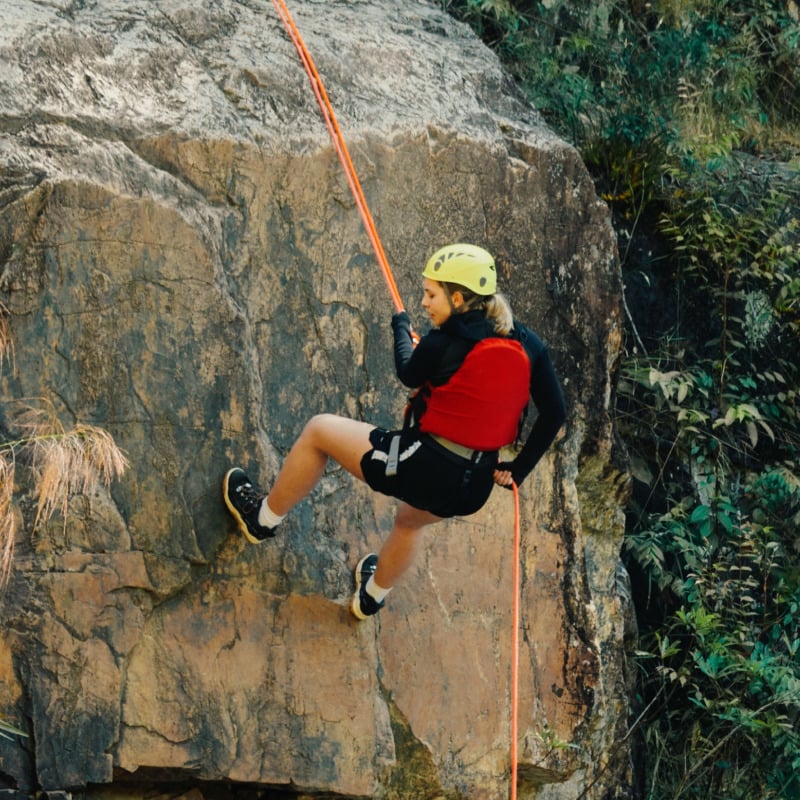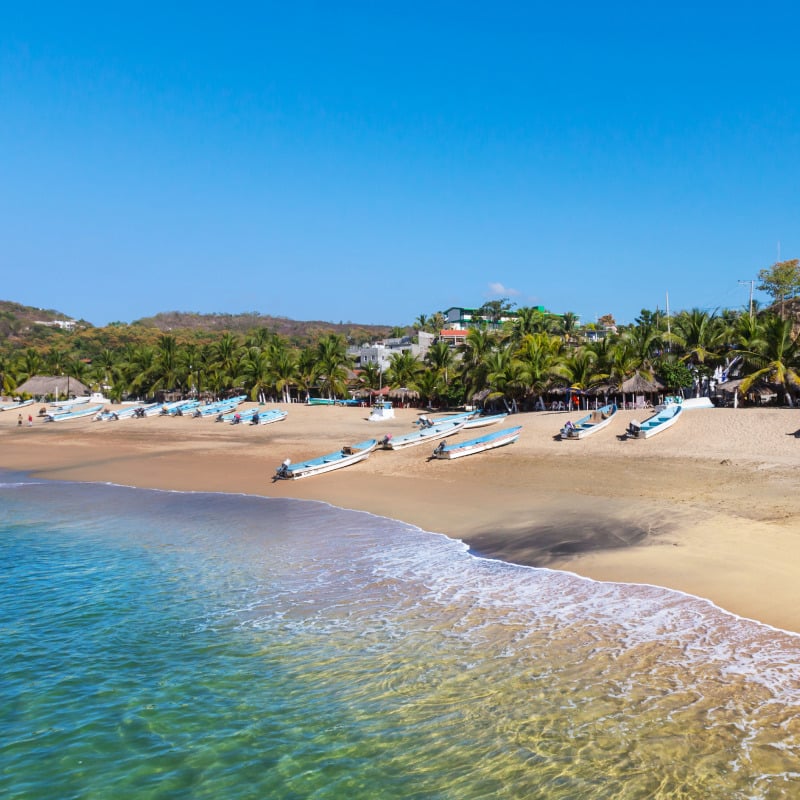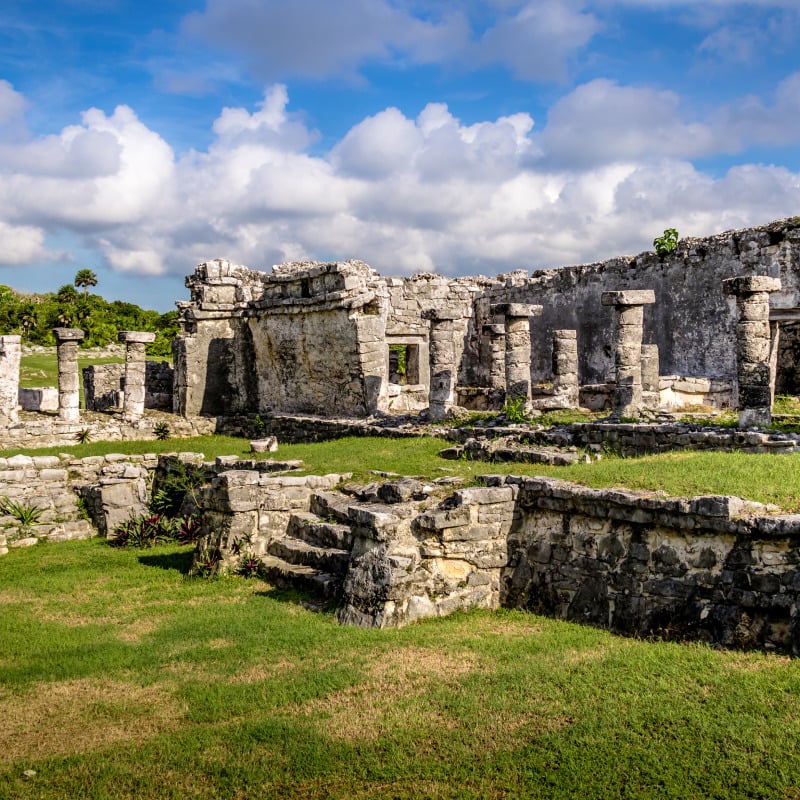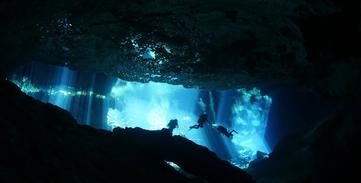
A Lung Full of Paradise
Marine Conservation Expedition in Mexico
Contribute to the restoration and preservation of the Mesoamerican Barrier Reef System.
Program information
Learn how to scuba-dive and conduct coral reef research, gaining skills for underwater surveys to preserve Mexico’s Caribbean coast, aligned with UN SDG 14: Life Below Water. Become an eco-conscious diver, studying reef ecology, indicator species, and scientific methods. Your collected data will support local authorities in sustainable coastal decisions.
Program overview
Are you passionate about marine conservation? The Mexican coastal area known as the Riviera Maya – known for its clear waters and beautiful beaches – also hosts several unique and important ecosystems, as well as critically endangered species like the Hawksbill sea turtle. It is home to the northernmost portion of the Mesoamerican Barrier Reef System (the second largest in the world), seagrass beds and mangrove forests. Hard and soft corals, hundreds of species of fish and marine invertebrates, as well as sea turtles and manatees call this area home. Due to several human related factors like unsustainable fishing practices, unsustainable coastal development, massive tourism activities and climate change, this area is facing an uncertain future. Added to this, the appearance of a new coral disease, stony coral tissue loss disease (SCTLD) in 2018 has diminished coral coverage to less than 25% – with certain coral species completely disappearing from some sites.
Volunteers on this program will contribute to the conservation of the coral reef ecosystem. They will assist with minimising marine plastic pollution by collecting waste during weekly beach cleanups, collecting data from this and sharing it online with our partners, as well as learning about proper waste management. Volunteers might also engage in environmental education activities with the local community to empower them in the conservation of the coral reef.
Your program will start with our professional staff providing you with the necessary training. You’ll learn proper in-water coral reef monitoring techniques, how to dive and how to become an environmentally aware diver. During this time you will earn your PADI Advanced Open Water certification and the Distinctive Specialty certification of PADI Coral Reef Restoration Diver (CRRD). This unique offering by GVI and PADI teaches best practices when conducting coral reefs surveys and participating in coral reef restoration projects (available to participants staying participating longer than 2 weeks).
Highlights

Participate in a range of impactful marine conservation initiatives that are guided by UN SDG 14: Life Below Water.

Dive into the tropical waters of the Caribbean Sea and experience the breathtaking coral ecosystem of the Mesoamerican Barrier Reef.

Contribute to ongoing environmental projects that address critical challenges aligned to the global UN SDGs.

Join local conservation partners and qualified professionals to ensure your efforts are highly ethical, meaningful and sustainable.

Venture outside typical travel itineraries to get exclusive access to extraordinary remote habitats, rare species and unique ecosystems.

Share epic experiences with like-minded, passionate changemakers from all over the globe.

With expert local staff and 24/7 support at every step – you can relax and enjoy the experience stress-free.

Disconnect from the digital world and reconnect with nature, yourself and your purpose.
Activities
Some of the example typical activities you could participate in on this program.

Learn how to identify species, conduct surveys and collect data to help build a research inventory of marine species in Mexico.

Applying standardised data collection protocols, you will assist in underwater surveys of key indicator species of the coral reef ecosystem.

Assist with additional research activities such as coral restoration, seagrass monitoring, beach cleanups and community conservation outreach.

Learn or improve scuba-diving skills through theory, confined water, and open water dives (applicable to programs over 8 weeks).

Gain more diving experience and try different types of dives: deep, navigation, buoyancy, naturalist, night, search, recovery and boat diving.

Learn 9 primary care skills and 4 secondary care skills in theory. Apply them in role-playing scenarios to prepare you to assist in an emergency.

Advance your diving skills with this unique PADI speciality to participate in coral restoration projects. Available for 4+ week participants.

Increase your diver safety awareness, handle complex situations, and practise interventions via rescue scenarios (available on 8+ week programs).
Skills
- Coral reef species identification
- Data entry
- EFR training
- Marine conservation
- PADI
- Survey research
Partners
Some of the partners we work with on base.
Program details
Dates and prices
Itinerary
06:30

06:30
07:00

07:00
10:00

10:00
12:00

12:00
14:00

14:00
17:30:30

17:30:30
18:00

18:00
What’s included?
General | |
|---|---|
| Food | |
| Safe and basic accommodation (usually shared) | |
| Airport pick up (unless stated) | |
| All project equipment | |
| 24-hour in-country support from local staff | |
| 24-hour emergency desk | |
| GVI Experiences |
Activities | |
|---|---|
| Sustainable project work | |
| Data collection and research |
Pre-program training | |
|---|---|
| Pre-departure webinar | |
| Pre-departure training (online) | |
| University of Richmond endorsed specialisation course |
Welcome training | |
|---|---|
| GVI welcome presentation | |
| Health & safety | |
| Local culture & environment | |
| UN SDGs | |
| Impact & ethics | |
| Child protection |
Certificates | |
|---|---|
| Program certificate | |
| University certificate – specialisation (University of Richmond) |
Not included |
|---|
| Flights |
| International and domestic airport taxes |
| Medical and travel insurance |
| Visa costs |
| Police or background check |
| Personal items and toiletries |
| Additional drinks and gratuities |
Life On Base
Base Photos
Our Puerto Morelos research station – where you’ll take part in project work – is located 80 metres from the beach. Your accommodation – where you’ll hang out, sleep and eat – is located 15 minutes by car, 45 minutes by bike or 90 minutes on foot from the beach. One of the best-kept secrets in the Yucatan, the small town of Puerto Morelos is incredibly safe and has a laid-back vibe with a friendly and welcoming local community. There are no big resorts or casinos here.
Mexico, while culturally diverse, is also one of the most biodiverse countries in the world.
From mariachi bands to Mayan temples, Mexico is best known for being the birthplace of the iconic taco. Puerto Morelos is the oldest port community in the Mexican Caribbean. Home to the northernmost tip of the Mesoamerican Barrier Reef System (the second largest barrier reef in the world), Puerto Morelos is a spectacular diving location. You’ll spot sea turtles and various rays – from the famous Caribbean stingray to the spotted eagle ray. If mammals are more your thing, West Indian manatees have been seen and a pod of bottlenose dolphins are frequent visitors. The mangroves offer the chance to see a variety of animals and waterbirds, including protected species like the American crocodile.
Your typical day includes diving, lab work, training on base, beach cleanups and community work. Rounded off with evening debriefs followed by dinner and time to relax – taking in a beautiful sunset, and sharing stories with your fellow team members.
On weekends, participants enjoy free time until Sunday dinner at the base. Local fun includes games, movies, beach time and beach volleyball. The base has kayaks and SUPs that participants can use in their free time under the supervision of a staff member. There are also 5 bicycles that participants can use. Getting around is easy with affordable public options, taxis, or bike rentals (30 – 100 USD/month).

Accommodation
You will live in shared dorm-style accommodation, with four beds per room, giving you the perfect opportunity to connect. The accommodation featu...

Transportation
We provide transportation to and from the airport up to three days prior to your arrival and three days after the end of your program – only from...

Communication
There’s limited access to long-distance communication when you’re on base, so make sure your friends and family know how often they can expect to...

Meals
You’ll get the opportunity to prepare breakfast in groups from our choice of cereals, pancakes, eggs and

Climate
Puerto Morelos is on the Riviera Maya, which is known for its tropical climate. The temperature remains relatively constant throughout the year – roughly 26°C ( 80°F).
Thi...

Smoking and vaping regulations
Since January 2023, smoking in public areas is prohibited, with fines up to £150 for violations. Owning or using vaping devices and solutions is ...
GVI experiences included in your program, at no extra cost.
We want you to make the most of the chance to live in – and contribute towards – the most diverse and unique wildernesses and communities on earth. Introducing GVI Experiences – immersive adventure, cultural and wellness activities exclusive to GVI that have been specially designed in collaboration with our local partners to support and stimulate sustainable economic development.
Enhance your impact. Expand your adventure. Explore your world.
Free time
Joining a GVI program not only allows you to collaborate with communities or work toward preserving unique ecosystems – but it also offers plenty of opportunities to explore the surrounding area or travel further to see what other parts of the region have to offer over weekends.
Field staff are a great source of advice and have helped us put together the following information on local travel options. You can choose to travel before or after your experience with GVI (subject to immigration restrictions), solidifying the lifetime friendships you’ve established on the program. Please note that the below options are not included in the program fee, and would be up to you to arrange at your own expense.
Weekend trips

Snorkelling with whale sharks
On the northern coast of Quintana Roo, where the crystal-clear water of the Caribbean sea meets the nutrient-rich water of the Gulf of Mexico, an oceanographic phenomena of upwe...

Bull shark diving
From November to March, on their annual migration to give birth, female bull sharks congregate off the coast of Quintana Roo. With the opportunity to get up close to these magni...

Mayan ruins
Many Mayan ruins are scattered throughout the Riviera Maya, and the province in which Puerto Morelos is located, Quintana Roo, is no exception. One of the most popular sites is ...

Eco adventure parks
A top destination for those visiting the Riviera Maya are the eco-adventure parks, like Xcaret and Xel-ha. These are beautiful, biodiverse areas featuring Mayan ruins that have ...

Cenotes
The Yucatan Peninsula is a large karst system with the world´s long...

Diving and snorkelling
Experience the stunning diversity of underwater life within the Mesoamerican Barrier Reef System, the seco...
Further travels

Other Latin American countries
Mexico is the perfect destination from which to travel to other Central and South American countries. Head to the jungles and volcanoes of Costa Rica and then further down to Pe...

Mexican culture
Mexico City is the home of many iconic cultural sites, including the Frida Kahlo Museum (also known as The Blue House) and the Palace of Fine Arts, where the work of her husband...

Hiking and rock climbing
There are plenty of excellent hiking, trekking, and mountain climbing destinations in Mexico. Pico de Orizaba is Mexico’s highest peak, followed by the active volcano Popocatépe...

Whale spotting
On the west coast of Mexico, Baja California is a peninsula bordered by the Pacific Ocean to the west and the Sea of Cortez to the east. One of the main reasons to visit this lo...
Cultural Immersion
Engaging intimately with a new context teaches global awareness, adaptability and critical thinking – skills highly valued in the modern marketplace. Local and cultural immersion is encouraged on all our programs around the world, and will also be one of the most enjoyable aspects of your experience. Luckily, there are many different activities that you can get involved in during your free time, or before and after your program.
On our community programs, the focus is on cultural topics, while on marine or wildlife programs the emphasis is more on the environmental element. Use your evenings and weekends to explore topics like local cuisine and religion, or how sustainable development challenges are affecting local contexts.

Festivals
- January: Christmas continues until the sixth of January in Mexico. On this day every year, the predominantly Catholic population celebrates el Dí...

Music
The most easily identifiable Mexican style of music is the mariachi band, featuring guitars, violins and trumpets. This form of music is unique to a specific region of Mexico, G...

Dances
The Jarabe Tapatío is the most well-known of all Mexican dances and is considered the country’s unofficial national dance. A male and female perf...

Cuisine
Possibly one of the most popular reasons to travel to Mexico is to experience authentic Mexican cuisine. Many of the world’s most widely used ing...

Religion and local customs
The legacy of colonialism means that most of Mexico’s population are Catholic. However, much of Mexican Catholicism is influenced by customs unique to the indigenous cultures th...

Languages
As a result of colonialism, Spanish is the most commonly spoken language throughout Mexico. As the second-most widely spoken language globally, v...
Speak to alumni

If you’d like to find out what the experience of joining a GVI project is really like, simply contact us and we’ll put you in touch with one of our many Alumni.
We’ll try to match you to an Alum based on your location, nationality, age, stage of academic career, gender, and program interests. This allows you to gain insights into the experience that is most relevant to you.
Depending on your location you might be able to speak to an Alum over the phone or online, or meet up with them face-to-face at a coffee shop nearby. We also run a series of small events around the world where you can speak to GVI Alumni, Ambassadors and staff members.
Get a first-hand perspective
Meet the team
Get acquainted with the GVI Latin America, Mexico, Puerto Morelos family

Miguel Angel Lozano
Program Manager
Miguel Angel is GVI’s Program Manager for the Marine Conservation Programs at GVI’s base in Puerto Morelos, Mexico. He has a backgr ...

Claudia Frederici
Dive Officer
This is Claudia, she is our Dive Officer at the GVI Puerto Morelos base in Mexico. Claudia is originally from Spain and helps out with everything from scientific research to fie ...

Kayla Moore
Science Officer
Meet Kayla, the Science Officer for GVI’s base in Puerto Morelos, Mexico. She is originally from Canada where she obtained her Bachelor’s Degree in Marine an ...
Parent Info
‘If only every student could do this. It changes your life in all the right ways,’ says Chris Heritage, parent of Luke Heritage, one of our teen volunteers who has participated on two GVI programs, one in Costa Rica and another in South Africa.
We are a parent-run organisation that is incredibly serious about health and safety, and increasing the impact, as well as the long-term career benefits of our programs. Our programs help young people develop the skills to select a career path that is personally fulfilling, and live a life aligned to the well-being of our planet and the global community.
GVI is a proud member of the Gap Year Association.
Ken and Linda Jeffrey, whose son Sam volunteered with GVI in Thailand, talk about how the experience affected Sam. He also went on to volunteer with GVI again in South Africa. ‘I know it sounds like a cliche but in a sense, he did go away as a boy and he came back as a young man. Both of us could recommend GVI without any hesitation to any other parent thinking about exploring an opportunity for their children to explore the world and to see different parts of it.’
Parent Info Pack
Download the Parent Pack and learn more about:
Our staff: All our projects are run by staff, selected, vetted, trained, and managed by our central office.
Health and safety: Our safety practices include a child and vulnerable adult protection policy and high participant ratios.
Staying in touch: See what’s happening on base, by following a hub’s dedicated Facebook page.
Free parent consultations: We would love to talk to you about exciting opportunities available for your child.
Arrivals




When it comes to support, we ensure that each participant is provided with unparalleled, 360 degree support, from your initial contact with the GVI Family, all the way through your program, and even after, as you become part of the GVI Alumni Team.
As part of this promise, we will ensure, whenever possible, that one of our dedicated staff will be available to meet you at the airport. In most locations, we also set up a Whatsapp group to help with managing airport arrivals.
We will arrange with you prior to your departure that, should you arrive in the agreed upon pick up window, a member of our staff will be there to welcome you, easily identifiable in a GVI t-shirt or holding a GVI sign and wearing a friendly smile.
This means there will be someone there to greet you as you land, and from there you will be transported to your GVI base to start your adventure and meet the rest of your team.
Your Impact
All of our programs have short-, mid- and long-term objectives that align with the United Nations Sustainable Development Goals (UN SDGs). This enables us to report on our collaborative impact across the world in a streamlined manner, measuring which UN SDGs we are making a substantial contribution to. Furthermore, this will help our local partners and communities measure and visualise their contribution to the UN SDGs.
Prior to your arrival on base, you will be educated about the UN SDGs. Then once you arrive on base, you’ll learn about the specific goals we have in this particular location, our various objectives, and also clarification of how your personal, shorter-term involvement contributes to these.
Our aim is to educate you on local and global issues, so that you continue to be an active global citizen after your program, helping to fulfil our mission of building a global network of people united by their passion to make a difference.

Puerto Morelos is the oldest port city in the Mexican Caribbean. Used as a port since the Mayan empire, its history as a modern port dates back to 1898. It was built to enable the exportation of gum from gum trees and wood from dye trees. Together with fishing, these were the main productive activities in the area.
There is a unique diversity of ecosystems – including low evergreen and swamp jungles, savannahs, coastal dunes, mangroves, cenotes, beaches, marine grass and coral reefs. The reef of Puerto Morelos is part of the Mesoamerican Barrier Reef System – home to thousands of marine species.
Today, Puerto Morelos is part of the 120-kilometre-long tourist corridor located between Cancun and Tulum. Tourism is the main economic activity of Puerto Morelos and continues to grow due to the development of large hotels and holiday accommodation along its coast. Local tour operators offer scuba-diving, snorkelling and free-diving tours in the Caribbean Sea, as well as reef lagoon, sportfishing tours, and tours to (and diving in) cenotes close to the town.
Fishing is the second most common commercial activity after tourism. Small skiffs are used to collect lobster and many species of commercial Caribbean fish. Local fishing organisations are aware that unsustainable fishing leads to the destruction of the reef, loss of fishing resources, and harm to ecotourism activities. GVI assists our partners in Puerto Morelos by collecting and collating data which helps decision-makers in coastal zone management.
Fish and coral surveys
We have several monitoring sites that we survey each year. The data we gather helps us determine the abundance and size of the fish, and understand the changes in the fish community dynamics. The information on coral, and other benthic organisms like sponges and macro algae is used to understand the reef’s coral coverage and overall health. The surveys are simpler for 4-week short-term interns as we aim to gather high-quality data by focusing the learning on fish species while touching on other topics such as coral species. The aim of this is to collect biomass data and information on coral illnesses and bleaching.
We also assist our partners in a coral reef restoration project. Through cloning (coral fragmentation) and assisted fertilisation of coral gametes, we assist in incrementing the biomass and genetic diversity of the hard coral population. We collaborate on coral nursery maintenance (inland and in water). And finally, we assist with transplanting coral colonies back into the reef to regenerate degraded sections of the reef in the ocean.
The Caribbean King Crab project rears juveniles to sufficient sizes and numbers to be used during coral restoration work, which increases the survival of transplanted fragments or recruits by actively counteracting macroalgae proliferation. You can play a part in the regeneration of degraded sections of the reef and rebuilding the ecosystem.
Turtle monitoring
The National Park of Puerto Morelos is abundant in seagrass, one of the favourite meals of green sea turtles. GVI participants assist with monitoring sea turtle populations by taking pictures of them while snorkelling and diving. This helps with identifying new and returning sea turtles. Sea turtle nesting season is from May to October.
Invasive lionfish monitoring and education
Lionfish are an invasive species in the Mexican Caribbean. We carry out lionfish data collection during our dive activities – registering size, quantities, location and depth, as well as taking photos of the specimens. We turn this information over to local authorities who keep track of the lionfish population dynamics. At times they request our assistance in removing this invasive species from the sites.
Incidental sightings of megafauna
Every time we dive, we look for megafauna species such as sharks, dolphins, manatees, sea turtles, eels and rays. We input sightings of these species into our database. The presence of these species can be an indicator of the health of the reef and general biodiversity.
Plastic pollution cleanup
We have weekly beach cleanups where we collect the rubbish that washes up on our beach. We classify it and count or weigh it into different categories, depending on their source. This information is recorded and sent to our partners in Ocean Conservancy. After adding it to their worldwide data bank, they analyse the information – looking for trends on sites and classification of rubbish.
Environmental education
By joining a GVI marine conservation program in Mexico, you’ll get involved in vital project work that directly impacts our partner organisations’ ability to promote their initiatives and carry out their mandate. This includes things like the creation of marine reserves, zonation schemes, and management policies. In turn, you are helping to protect Mexico’s precious marine life and the ecosystem.
You will be able to work closely with our local partners – collecting and collating data that is used to aid decision-makers in the coastal zone and resource management in Mexico.
You’ll also assist the community by conducting environmental education programs. Once a fishing village, the town of Puerto Morelos is now part of one of the largest marine parks in Mexico. Fish is still an important food source in the community, and fishing provides a daily source of income. Sustainable fishing methods and other means of protecting the natural environment are vital to maintaining the marine abundance that makes fishing and international tourism profitable. We work to support the local community’s efforts to learn about and protect their marine resources and the health of the reef off the coast of Puerto Morelos.
These initiatives allow us to support the conservation work, the community, and our local partners. They also address two of the United Nations Sustainable Development Goals (UN SDGs), namely Goal 4: Quality Education and Goal 14: Life Below Water.
Project objectives
GVI Puerto Morelos Marine Long-term Objectives:
1. Provide data to our partners on the overall health of the reef, to be used for coastal management within the coral reefs of Puerto Morelos National Park, and collaborate in the coral restoration project.
2. Raise environmental awareness with the community in Puerto Morelos.
3. Minimise the environmental impact that visitors and other people have within the national park.
4. Increase in-country capacity within our partners and community members in the coral reefs of Puerto Morelos National Park.
Our Ethics
Below is a list of core ethics and best practices we believe are essential to the operation of high quality, ethical volunteer and sustainable development programs. We believe that all responsible volunteer and sustainable development operations should focus upon these principles. If you are considering volunteering, these are some of the key considerations you should question, to ensure that your time and money contributes towards positive change.
We want to constantly develop our own understanding of ethical best practice. In so doing, we aim to provide an exemplary industry standard for other education institutions, international development organisations, and social enterprises. Our Badge of Ethics stands for the drive to always do good, better. Find out more, click on the Badge below.
Our 10 ethical commitments
01
Locally Driven, Collaborative Projects
We aim to design all our projects in collaboration with local organizations and communities and ensure that they are locally driven.
02
Clear Objectives & Sustainable Outcomes
We aim to clearly define short-, mid-, and long-term objectives with sustainable outcomes for all our projects.
03
Impact Reporting
We aim to track, record, and publish the impact of each of our projects.
04
Working Against Dependency
We aim to build in-country capacity by assisting local organizations in becoming self-sustaining.
05
Responsible Exit Strategies
For each local organization we work with, we aim to have a plan in place for withdrawing support responsibly.
06
Clear Roles & Specialized Training
We aim to ensure that every participant is assigned a clear role and that they are fully trained and supported to carry out their work by specialized staff.
07
Respect for all
In all our actions we aim to respect the skills and efforts of all and seek to protect the rights, culture and dignity of everyone who engages with GVI.
08
Local Ownership
We work to ensure that credit for the results of any project, along with any data collected, research conducted, or Intellectual Property developed, remains the property of local organizations.
09
Transitioning from the Orphanage Model
We do not condone and aim to withdraw support of orphanages and residential care centers.
10
Child and Vulnerable adult policies
We will live by our Child Protection and Vulnerable Adult policies.
Continual Development
As an organization, GVI is committed to striving toward best practice, and to educating both our potential participants, our partners, and the world at large about them. Both the volunteering and sustainable development sectors are increasingly, and rightly, under scrutiny. Many recent local and global articles highlight poor practices and questionable ethics. GVI is widely recognized for striving to apply global best practice in the volunteering, education and sustainable development sectors throughout our operations by reputable organizations such as ChildSafe.
However, global best practice is always evolving and we dedicate both time and resources to engage with internationally respected experts and learn from the latest research to ensure our programs both fulfil their potential to create maximum positive impact, and minimise their potential to create unintentional negative impact. Along with and as part of the sustainable development and volunteering community, we are constantly learning and applying this learning to practice. We do not always get everything right, but we seek feedback from our community members, partners, participants and our staff, and react accordingly. We know are already doing a great job, and feedback we have received confirms this, but we aim to do even better and are continuously refining our operations to improve upon our already excellent reputation.
Program ethics
No orphanage programs
We don’t support or allow participants to work in institutional residential care facilities, also known as orphanages. We partner with ReThink Orphanages and Freedom United.
Child and vulnerable adult protection policy
Our Child and Vulnerable Adult Protection Policy requires all our staff and participants to complete a criminal background check and to learn why you shouldn’t reveal a child’s identifying factors in photographs. We support the ChildSafe Movement.
No medical volunteering
We don’t offer any programs where our participants engage in medical treatment. This is because our participants aren’t typically qualified to do this work and would therefore not be able to do this work in their home country. Our participants only assist with public health programs.
No disability support programs
We don’t offer any programs where our participants work directly with people with disabilities. This is because our participants aren’t typically qualified to do this work and would therefore not be able to do this work in their home country.
Aligned to local objectives
Each one of our initiatives is aligned to objectives set by a local organisation or professional. Our staff and participants work to support these local actors in achieving their specific goals.
Local employees remain employed
Our participants don’t replace the staff employed by local organisations. Rather, they support currently employed staff with achieving their objectives. Our goal is always to increase local capacity to address local problems.
Local employees remain focused
Participants require training and support to ensure that they carry out tasks correctly. Our staff provide this training and support so that local staff can focus on what is truly important to their organisation at the time.
No entertainment-based activities
We don’t support the use of wild animals for entertainment purposes. This includes riding animals, having them perform tricks, feeding or bathing them or getting close to them to take photos
No orphaned animal sanctuaries
We don’t encourage, support or allow the rearing of “orphaned” wild baby animals kept at a “sanctuary”. The conservation value of these types of programs is negligent and would only ethically be used in extremely rare cases
Guidelines for touching or movement restriction
When wild animals are restricted for conservation purposes we follow the guidelines of Fair Trade in Tourism South Africa (FTTSA), approved by the Global Sustainable Tourism Council.
Animal welfare guidelines
We ensure that the Five Freedoms of Animal Welfare are followed. These include the freedom to express normal behaviour and freedom from distress, discomfort, hunger, thirst, fear, pain, injury or disease.
Local community empowerment
We ensure that conservation efforts are also always locally led, that community needs are front-and centre of any conservation effort and that our participants, projects and partners work to increase local community engagement in local conservation efforts.
No veterinary programs
We don’t offer any veterinary programs or animal rescue and rehabilitation programs. We don’t allow participants to do any work they would not be able to do in their home country.
Training
A GVI program is an investment in your career. No matter which you choose, you will be working toward improving your employability by mastering new social skills, gaining further technical expertise and earning qualifications in many cases. Most of our staff are, in fact, GVI Alumni, and we have helped many of our Alumni discover, move toward, and earn their own personal dream jobs. Each program includes introductory workshops, ongoing presentations, as well as on-the-ground professional support provided by our very own trained staff members. In addition, our training programs are critical for helping us to ensure the long-term impact of our sustainable development projects around the world.
For all GVI participants
Orientation: Travelling Responsibly and Ethically
Learn about the importance of child and vulnerable adult protection best practices and how to apply them while on project.
Orientation: UN Sustainable Development Goals
Introduction to the history and evolution of sustainable development, the United Nations Sustainable Development Goals (UN SDGs) and how these related to your project work.
Orientation: Further Opportunities for Impact
Learn about our country locations and further opportunities available to you during or after your program.
For all participants at Puerto Morelos
Conservation: survey techniques and logistics
An introduction to different survey techniques and best practice guidelines for surveys; introduction to different types of data and how to record information via a datasheet.
Conservation: biodiversity & target species identification
Learn about biodiversity and how biodiversity is measured, and classifying different species and how to identify species that indicate the health of the habitat.
Marine conservation: pollution and plastics
Learn about issues with plastic and measures that can be taken to help reduce plastic consumption.
Marine conservation: coral reefs
Learn about what a coral reef is, its importance, how it is formed, how this ecosystem works.
Fish and Coral Identification
Learn how to identify fish and coral species that are important to our marine conservation partners. This training includes a powerpoint identification exercise and an in-water identification exercise.
Environmental Education Community Project
Learn about the specific events for children arranged by our in-country partners and the games played arranged around the topics of environmental conservation.
Beach Plastic Pollution
Learn how to categorise waste collected during beach cleans and input plastic pollution data for analysis.
Lionfish Eradication
Learn how to use spearfishing techniques to eradicate invasive lionfish from the Mexican Caribbean reef. This activity depends on the requirements of our local partners and does not happen year-round.
Turtle Biology, Monitoring and Identification
Participants are taught how to take underwater pictures of sea turtles and compare them to a photo ID catalogue. In some cases, new ones are discovered and the participant registers the turtle.
Coral Watch Monitoring
Learn to use a method of identifying coral health developed by the University of Brisbane. The method is used by citizen scientists and professional researchers to monitor coral all around the world.
Incidental Sightings
Participants learn to identify megafauna common in the region such as stingrays, manta rays, moray eels, sharks, sea turtles and large pelagic fish such as barracudas.
Threats to Coral Reefs
Gain insight into the threats faced by reefs globally, such as climate change and the resulting coral bleaching, plastic pollution, and unsustainable fishing methods, as well as how these manifest in local areas.
Introduction to Coral Reefs
Learn about the basic biology of corals and the underlying biology of the reef system.
Hazards of the Reef
This includes a discussion of the marine organisms found in the surrounding waters like stingrays, fire coral, sea urchins, lionfish and rockfish, that might cause harm to swimmers and divers. Participants learn how these can be avoided and how to treat injuries if they occur.
Monitoring Techniques, Demonstrations and Tests
We use the techniques specified by the Mesoamerican Barrier Reef System synoptic monitoring program and the Atlantic and Gulf Rapid Reef Assessment (AGRRA) monitoring techniques to monitor the health of the reef ecosystem. They include noting the abundance, size, and any diseases of specific species to determine the biodiversity and biomass of the area and noting coral cover area to determine coral health. Participants learn about how to use the point intercept methodology, a system that uses precise distances to monitor benthic marine communities and ecosystems such as corals. This is done to carry out higher area coverage in a statistical analysis. Volunteers and interns are also taught to use other monitoring methods used by our local partners. Spending a longer duration on the program allows you to gain a more in-depth understanding of the project work.
PADI Advanced Open Water Diver
This training takes scuba-diving further through five adventure dives. This includes two types of required dives, deep diving and underwater navigation, and any other three types of adventure dives. At Puerto Morelos we offer the peak performance buoyancy dive, search and recovery dive, and the underwater naturalist dive.
PADI Coral Reef Restoration Dive Distinctive Specialty
This course teaches participants about the importance of coral reef systems and how to conserve them. You will learn how you can help to conserve coral reef systems. Through classroom discussions, you’ll learn how coral reefs function and the complex nature of life on a reef, why coral reefs are so important, why many coral reefs are in serious trouble, and what you can do to prevent further decline.
Certificates & qualifications

PADI Coral Reef Restoration Diver (CRRD) Distinctive Speciality
The PADI Coral Reef Restoration Diver Specialty Course is designed to educate divers about the various threats that are affecting our coral reefs worldwide and techniques to monitor and mitigate these negative impacts. This course will explore the methods currently used to protect, preserve and restore coral reefs. Divers will learn how to plan, organize and conduct coral reef surveys as well as develop the in-water skills (i.e. buoyancy control, monitoring techniques) that will allow them to perform research and restoration dives safely.
The goals of the Coral Reef Restoration Diver training are to teach the diver about the various ways in which we can safely monitor and restore the reef as well as providing them with the understanding of why reef restoration projects are so important.

PADI Certifications
Earning a professional diving qualification, such as those offered by The Professional Association of Diving Instructors (PADI), is a necessary step for many aspiring marine biologists. All GVI marine conservation programs include training by certified dive instructors that allows participants to qualify for a range of PADI certifications including PADI Open Water, Advanced Open Water, Divemaster, Instructor, Rescue Diver and Master Scuba Diver Trainer.

GVI Online Marine Conservation course (optional)
Learn more about what is contributing to the decline in the health of the world’s ocean and marine species and what can be done to prevent it. You’ll gain a greater understanding of the field of marine conservation, explore how to protect marine ecosystems and discover how you can contribute towards conservation-related initiatives. After successfully completing the course, which you have the option of doing prior to your in-country program, you’ll receive a certificate from the University of Richmond.
This online course, valued at £295, is included in all volunteering programs. Full course details can be found here.
Support & Safety
We won’t sugarcoat it — traveling abroad is usually a complex process that carries an element of risk. But this is exactly why we’re passionate about providing extensive support throughout the process as well as the highest safety standards during the in-country phase. We believe that volunteering abroad should not only be impactful, but an enjoyable experience that carries as little risk as possible. This is exactly how we’ve been able to maintain our reputation as the most highly respected volunteering organisations in the sector over the past two decades.


Health and safety case studies

How GVI upholds health and safety
It takes courage to book a GVI program, get on a flight, and head off to somewhere new. Volunteering offers a level of cultural immersion that typical backpacking or holidays ju...

GVI's commitment to safety and security
As the saying goes: ‘Expect the best, plan for the worst’. Cliched or not, we take it to heart. This tenet is at the core of how GVI operates when it comes to promoting the heal...

How GVI remains prepared for natural disasters
The weather isn’t just a topic for polite small-talk here at GVI. We have emergency action plans in place for all scenarios. So when the weather, or other natural forces, takes ...

How GVI manages participants expectations
Once GVI has matched a participant to a program that suits their passions and goals, our team aims to set the right expectations for them. In the event that false expectations a...
Make the most of our unique programs with these exclusively curated local adventure and wellness experiences.
















Want to connect with some of our past participants about their adventures? Get in touch with hundreds of friendly ambassadors all over the world who would be more than happy to answer any questions.



